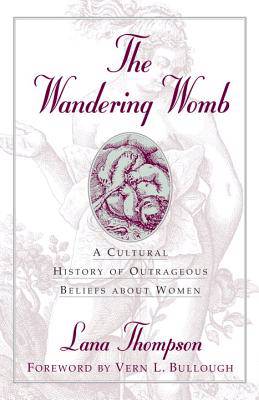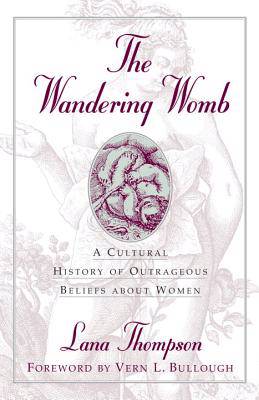
- Afhalen na 1 uur in een winkel met voorraad
- Gratis thuislevering in België vanaf € 30
- Ruim aanbod met 7 miljoen producten
- Afhalen na 1 uur in een winkel met voorraad
- Gratis thuislevering in België vanaf € 30
- Ruim aanbod met 7 miljoen producten
Zoeken
Omschrijving
Female anatomy, especially the womb, has for centuries been shrouded in mystery and misunderstanding, defining the social place of women in male dominated cultures. Even with advances in medicine, some in today's society believe they can control women's sexual identity.The Wandering Womb is a provocative tour through religious, medical, and social histories, pinpointing humorous, outrageous, and hair-raising beliefs, practices, and longstanding falsehoods that permeate human cultures. In Egyptian times, it was believed that the womb was an entity unto itself capable of "wandering" in the body, and also into the world beyond in search of nourishment! This idea, and many others were entwined in medical ignorance and religious superstition, which have often labeled women as incomplete, inferior, imperfect, and even inherently evil.Sexual myths have viewed menstruation as dirty, designing outrageous rituals around this natural process, from strange diets and prescriptions to mandated isolation and violent practices. Sexuality and desire in women has been viewed as taboo and dangerous, while child rearing is considered the highest calling. In Western history, women's health problems were often written off simply as an "unsatisfied uterus," or "hysteria" of their weak and demon possessed bodies, while physical characteristics were used to label women as witches.This fascinating, often maddening romp through the bedrooms and birthing rooms of time illustrates why women have been sexually "enslaved," and reminds us that we've come a long way from the mythical virgin birth to women's liberation and beyond.
Specificaties
Betrokkenen
- Auteur(s):
- Uitgeverij:
Inhoud
- Aantal bladzijden:
- 208
- Taal:
- Engels
Eigenschappen
- Productcode (EAN):
- 9781573922647
- Verschijningsdatum:
- 1/02/1999
- Uitvoering:
- Hardcover
- Formaat:
- Genaaid
- Afmetingen:
- 160 mm x 237 mm
- Gewicht:
- 503 g

Alleen bij Standaard Boekhandel
+ 82 punten op je klantenkaart van Standaard Boekhandel
Beoordelingen
We publiceren alleen reviews die voldoen aan de voorwaarden voor reviews. Bekijk onze voorwaarden voor reviews.











